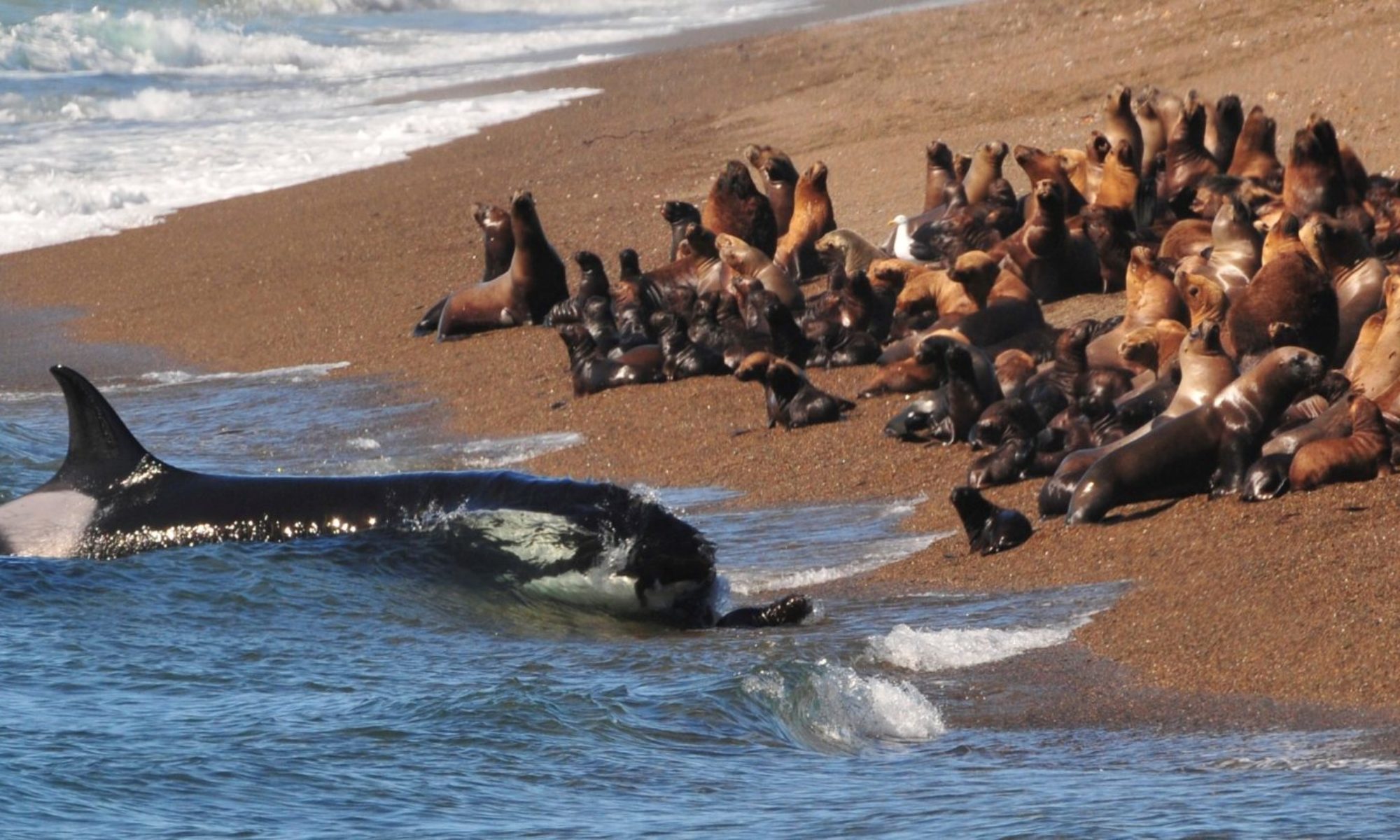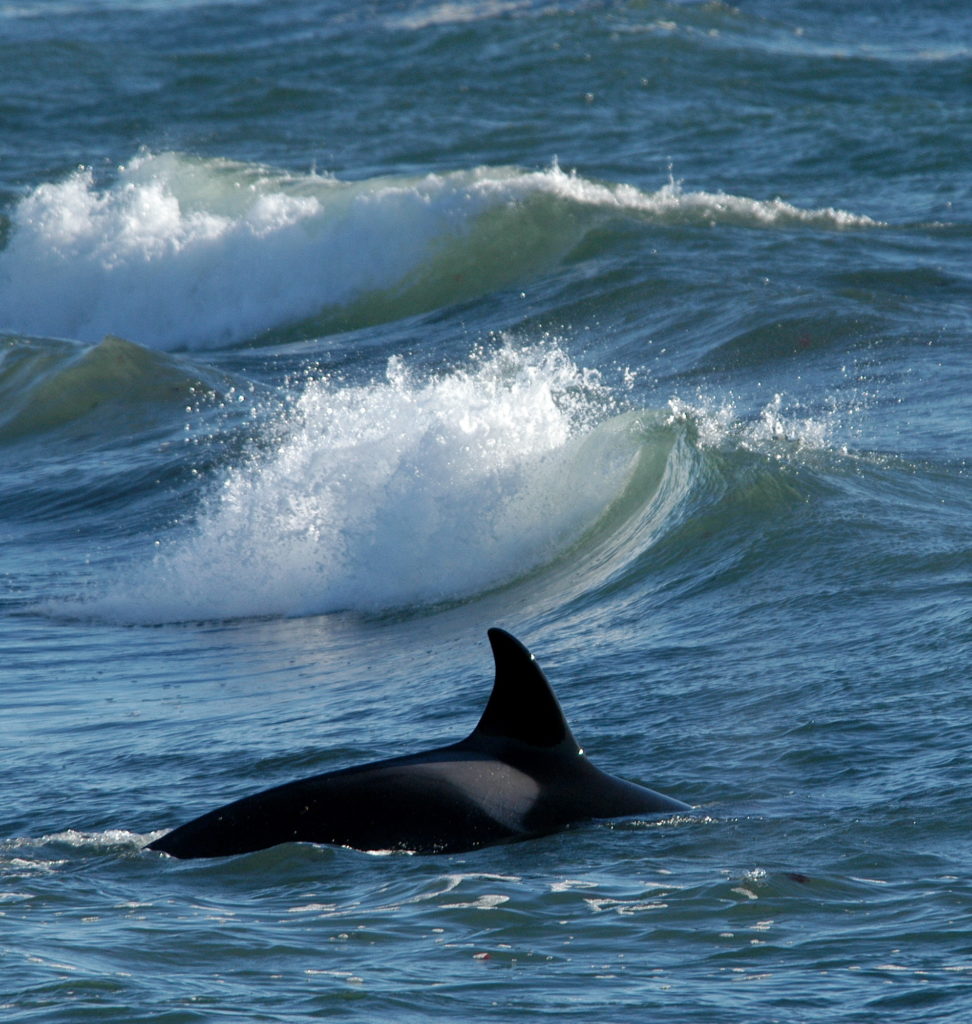
The Society of Marine Mammalogy scientific conference was held 1-5 August 2022 in Florida, USA. Four members of the PNOR team attended virtually and three co-authored this poster, which can be downloaded as a pdf;
Cazenave J., Copello J.M. & Visser I.N. (2022). Surfing for survival. Poster presented at the 24th Biennial Conference on the Biology of Marine Mammals; 1-5 August; Palm Beach, Florida. Poster ID# 2022376.
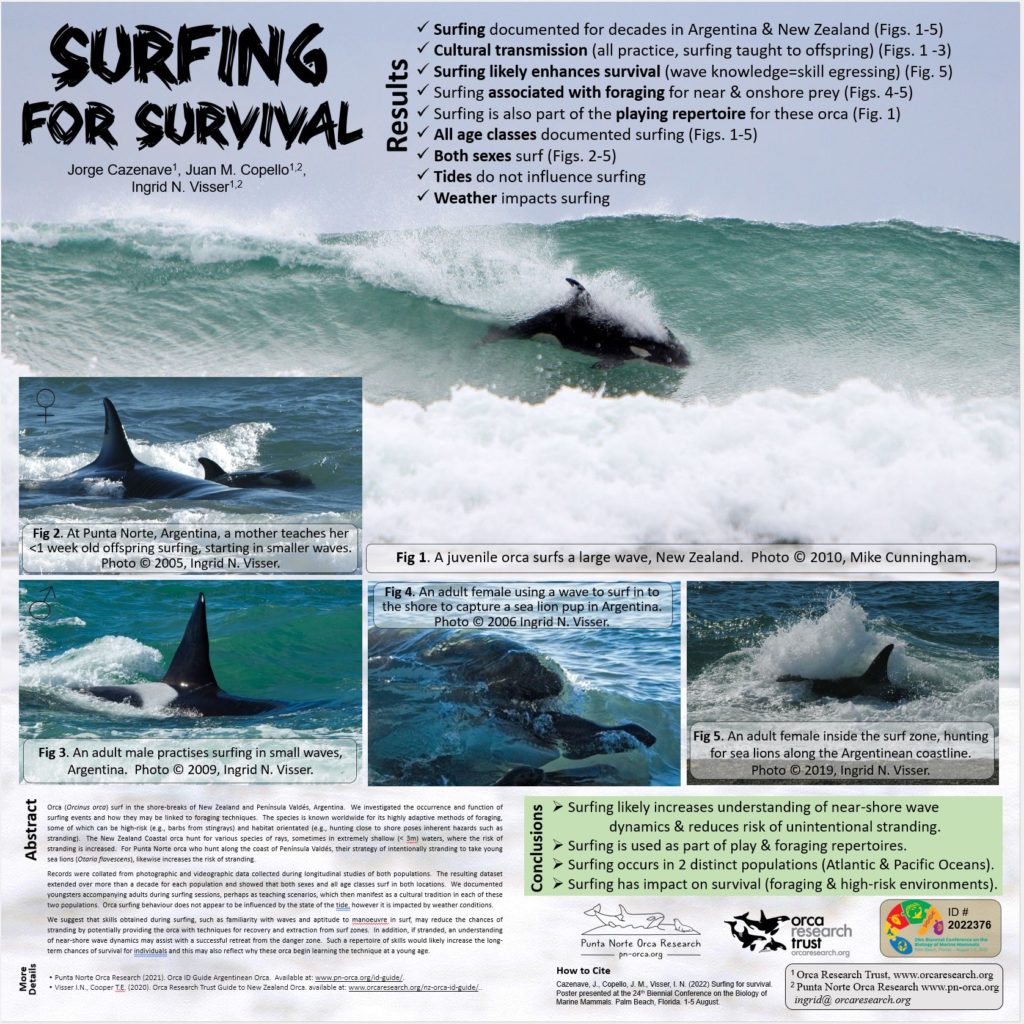
Additionally, here is some information about the background of the research; Surfing is an orca behaviour that we see fairly regularly in both Argentina and New Zealand (but it is rarely documented in other locations). The Orca Research Trust and Punta Norte Orca Research collaborated for this research which not only highlight this spectacular behaviour, but also raises awareness that behaviours which some might view as ‘not-so-important’, can actually have long-term implications for those who exhibit them.
For many years there were a number of animal biologists who argued that play behaviour was just that – and as such it was low on the scale of importance. However, there were those of us who thought otherwise and our way of thinking has prevailed. We believe that play behaviour for animals can have many benefits which include (but are not limited to) keeping fit, socializing, learning skills in a low-risk environment, keeping skills honed and keeping the mind flexible. It can help build trust amongst those who are involved and let’s not forget it can be just purely enjoyable and fun! (which can reduce stress, something that is very important in all animals lives, including ours).
But how to do we know when play fulfils any of these ‘other’ roles? Actually, it can be hard to tell sometimes and in most instances we can’t easily separate or distinguish the various roles that play may have. And, of course, there may in fact be a number of roles occurring simultaneously.
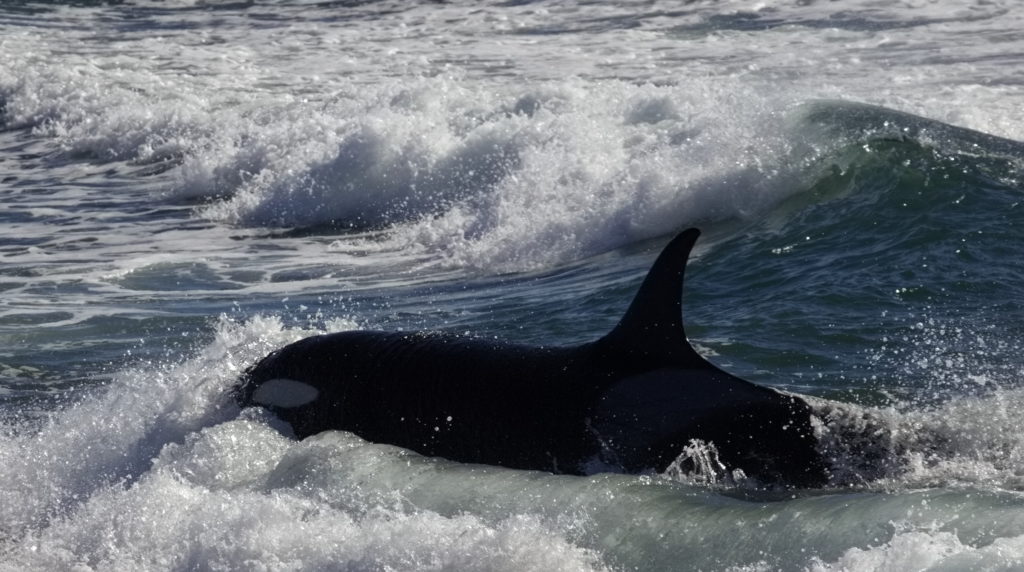
But there are some instances where there are overlaps that can be pretty clear if we look at the bigger picture. This is the case for those orca who surf. Although they at times do this for fun, during these sessions, by default they are also experiencing a range of other behavioural benefits. An individual may be very young and only just starting out surfing next to its mother, or it may be an animal who has had years to fine-tune its surfing skills, but it still practises and keeps those skills sharp.
Below is a sequence of an orca family surfing off Punta Norte – the surf isn’t big, but the whole family gets involved and the juvenile takes it to the next level by breaching when the wave runs out.
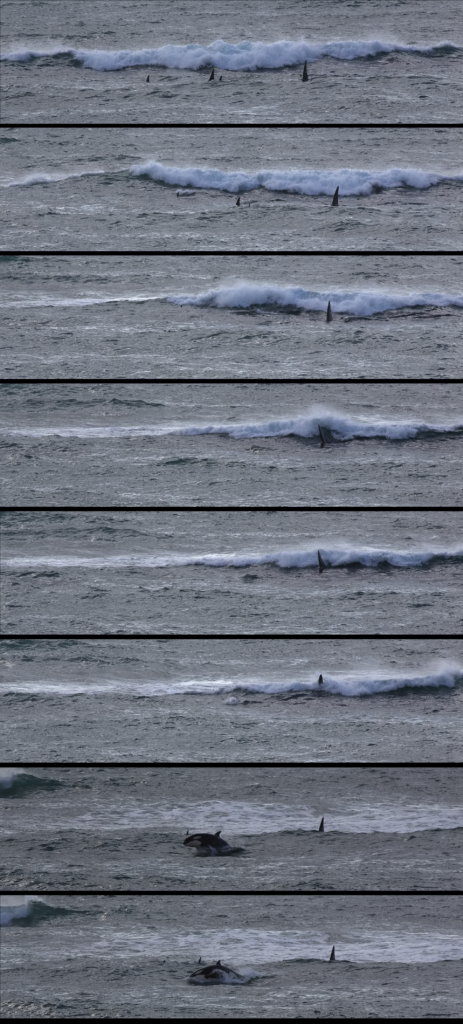
What we do know from watching the high-risk foraging behaviour of the Punta Norte and the New Zealand Coastal orca ecotypes, the advantages of being a good surfer are obvious. Not only can an individual use those waves to their advantage when hunting, such as rising higher up onto the beach to take a sea lion pup, but they can also use their knowledge to help them get off the beach. This behaviour has been one that has fascinated us ever since we first witnessed it and we are still blown away by the finesse with which some of these orca manoeuvre in the waves. What we wouldn’t give to be able to surf like they do!

There was an article written about our poster, in the New Zealand online news ‘Stuff’.
